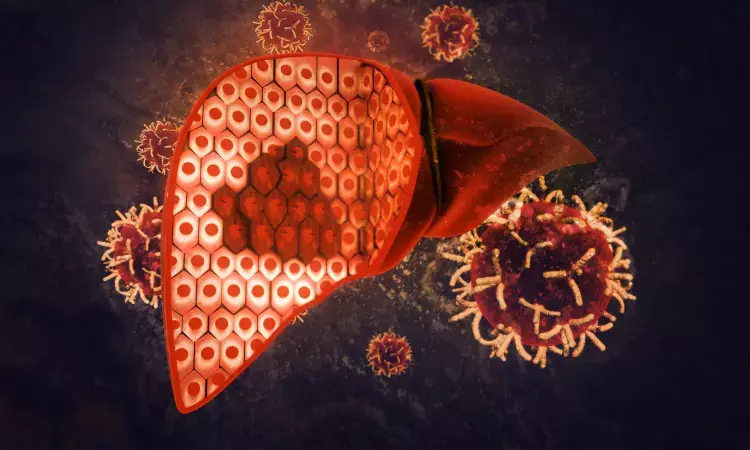- Home
- Medical news & Guidelines
- Anesthesiology
- Cardiology and CTVS
- Critical Care
- Dentistry
- Dermatology
- Diabetes and Endocrinology
- ENT
- Gastroenterology
- Medicine
- Nephrology
- Neurology
- Obstretics-Gynaecology
- Oncology
- Ophthalmology
- Orthopaedics
- Pediatrics-Neonatology
- Psychiatry
- Pulmonology
- Radiology
- Surgery
- Urology
- Laboratory Medicine
- Diet
- Nursing
- Paramedical
- Physiotherapy
- Health news
- Fact Check
- Bone Health Fact Check
- Brain Health Fact Check
- Cancer Related Fact Check
- Child Care Fact Check
- Dental and oral health fact check
- Diabetes and metabolic health fact check
- Diet and Nutrition Fact Check
- Eye and ENT Care Fact Check
- Fitness fact check
- Gut health fact check
- Heart health fact check
- Kidney health fact check
- Medical education fact check
- Men's health fact check
- Respiratory fact check
- Skin and hair care fact check
- Vaccine and Immunization fact check
- Women's health fact check
- AYUSH
- State News
- Andaman and Nicobar Islands
- Andhra Pradesh
- Arunachal Pradesh
- Assam
- Bihar
- Chandigarh
- Chattisgarh
- Dadra and Nagar Haveli
- Daman and Diu
- Delhi
- Goa
- Gujarat
- Haryana
- Himachal Pradesh
- Jammu & Kashmir
- Jharkhand
- Karnataka
- Kerala
- Ladakh
- Lakshadweep
- Madhya Pradesh
- Maharashtra
- Manipur
- Meghalaya
- Mizoram
- Nagaland
- Odisha
- Puducherry
- Punjab
- Rajasthan
- Sikkim
- Tamil Nadu
- Telangana
- Tripura
- Uttar Pradesh
- Uttrakhand
- West Bengal
- Medical Education
- Industry
Higher levels of supplemental oxygen ineffective in reducing risk of infection after liver transplantation

Poland: According to the latest research article published in BMC Medicine, in patients of liver transplantation (LT), a higher level of postoperative supplemental oxygen is ineffective in reducing infection risk.
Patients undergoing surgery are at future risk of infection, and it is a global public health issue. WHO guidelines and CDC recommendations for preventive strategy include the provision of an 80% fraction in all adults of inspired oxygen (FiO2) for 2–6 h postoperatively.
Immunosuppression necessitation in transplantation raises concerns about early postoperative infections. Previous research has reported the benefits of high FiO2 in patients with colorectal procedures. However, there is a lack of information for LT patients,
Considering this background, a team of researchers evaluated the efficacy and safety of high FiO2 to LT patients in an attempt to analyze infection prevention.
The researchers randomly assigned LT patients to either 28% or 80% FiO2 (fraction of inspired oxygen) for six postoperative hours. The main outcome was to check infections during the 30-day post-transplant period. Mortality, morbidity, pulmonary complications, hospital stay and ICU stay, the concentration of bilirubin, alanine and aspartate transaminase activity, and international normalized ratio (INR) were the secondary outcomes.
The study results could be summarised as follows:
- One hundred ninety-three patients were randomized to 28% ( 99 patients) and 80% ( 94 patients) FiO2.
- 34.0% (32 patients) assigned to 80% FiO2 had an infection.
- 23.2% (23 patients) assigned to 28% FiO2 had an infection.
- Patients randomized to 80% FiO2 had frequently developed severe complications, had longer ICU stay and had higher bilirubin concentration over the first five post-transplant days with a significant p-value.
- There was no difference reported between the two groups for other secondary outcomes.
Concluding further, postoperative hyperoxygenation, routine 80% postoperative FiO2 is not indicated for prophylaxis of infections in LT patients as it lacks efficaciousness.
The study's limitations include sample size, bias, and deviations from assigned groups.
Further reading:
Figiel, W et al. Postoperative Supplemental Oxygen in Liver Transplantation (PSOLT) does not reduce the rate of infections: results of a randomized controlled trial. BMC Med 21, 51 (2023). https://doi.org/10.1186/s12916-023-02741-w
BDS, MDS in Periodontics and Implantology
Dr. Aditi Yadav is a BDS, MDS in Periodontics and Implantology. She has a clinical experience of 5 years as a laser dental surgeon. She also has a Diploma in clinical research and pharmacovigilance and is a Certified data scientist. She is currently working as a content developer in e-health services. Dr. Yadav has a keen interest in Medical Journalism and is actively involved in Medical Research writing.
Dr Kamal Kant Kohli-MBBS, DTCD- a chest specialist with more than 30 years of practice and a flair for writing clinical articles, Dr Kamal Kant Kohli joined Medical Dialogues as a Chief Editor of Medical News. Besides writing articles, as an editor, he proofreads and verifies all the medical content published on Medical Dialogues including those coming from journals, studies,medical conferences,guidelines etc. Email: drkohli@medicaldialogues.in. Contact no. 011-43720751


